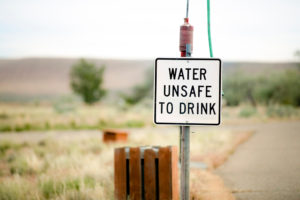
Victims of the water contamination at Camp Lejeune can hold the federal government accountable and may be able to receive compensation for their injuries thanks to legislation enacted earlier this year. The Camp Lejeune Justice Act became law in August, and many people have questions about how to file a Camp Lejeune claim and what to expect from the process.
Unfortunately, some have seized upon the uncertainty that water contamination survivors may feel and are using it to take advantage. Camp Lejeune scams are becoming more frequent, and you should be cautious when seeking help for your case. Hiring a skilled Camp Lejeune attorney to assist with the claims and litigation process is essential. Knowing warning signs that could signal fraud can help you make the right choice.
What Is the Camp Lejeune Justice Act?
The Camp Lejeune Justice Act gives veterans and their families as well as those who worked on the base a path to pursue legal compensation for injuries and medical conditions that have developed due to water contamination. Instead of only receiving disability benefits, Camp Lejeune survivors can seek damages for medical expenses, lost wages, loss of earning capacity, out-of-pocket expenses, pain and suffering, emotional distress, disability and loss of society and companionship. Traditionally, servicemembers and their families cannot sue for injuries sustained during active service and must go through the VA instead. The bipartisan law created an exception for Camp Lejeune, and veterans can now sue the federal government for the unconscionable indifference it showed to our veterans and their families. Thousands of Camp Lejeune claims have been filed since the Camp Lejeune Justice Act passed.
Before filing a civil lawsuit, you must file a claim through the Office of the Judge Advocate General (JAG) of the Navy’s Tort Claims Unit (TCU). On that claim form, you’ll detail your injuries, medical conditions and provide information about when you served on the base. To qualify, you must have spent 30 days at Camp Lejeune from August 1953 to December 1987. Then, the government has an opportunity to respond to the claim. In its response, the unit will either offer a settlement or deny the claim. If a claim isn’t appropriately compensated — whether because of a denial or settlement offer that isn’t reasonable — the next step is filing a Camp Lejeune lawsuit.
Beware of Camp Lejeune Lawyer Scams
Filing a Camp Lejeune claim can be complex, and an attorney can help navigate the complicated system. You might be asked for medical records, proof of enlistment, and evidence of your injuries. The right attorney will make this process easier for you. When seeking legal advice, you should be careful not to hire the wrong person. Beware of anyone who promises to get you a quick cash settlement related to your Camp Lejeune claim. Con artists may also solicit your personal information through phone calls, emails, and social media websites and promise a successful claim in exchange.
Look for a Camp Lejeune attorney offering a free consultation to discuss your legal options. Avoid lawyers who ask for hefty upfront fees and vow a large settlement. If anything feels like it’s too good to be true, it probably is. Receiving compensation from your Camp Lejeune claim won’t happen immediately, but bad actors might get your hopes up by offering otherwise. A reputable attorney will only get paid if you do.
History of Camp Lejeune Water Contamination
In the 1950s, multiple water sources at Marine Corps Base Camp Lejeune became contaminated with several chemicals not meant for human consumption. The contamination was caused by various factors, including a dry cleaning company’s improper disposal practices and chemical leaks and spills. The servicemembers stationed at the base unknowingly drank, cooked with, and bathed in water that contained toxic chemicals. Military family members and civilians who worked on the base were also exposed to the polluted water. The U.S. military didn’t shut down the poisoned wells until the 1980s — more than 30 years after the problem began. By then, countless people were exposed to the water’s chemicals, and many developed serious medical issues.
The chemicals at Camp Lejeune are associated with a long list of health complications. Some include Parkinson’s disease, aplastic anemia, miscarriage, congenital disabilities, and neurological issues. Camp Lejeune water contamination has been linked to various life-threatening illnesses, including breast, bladder, kidney, and liver cancers. By some estimates, hundreds of thousands of people were sickened because of Camp Lejeune chemical exposure. The Department of Veterans Affairs (VA) offers disability benefits for veterans stationed at Camp Lejeune who later developed a qualifying health condition. But for many victims, this wasn’t enough. Documents have shown that the federal government discovered the pollution as early as 1983 but didn’t close the affected water wells for several years while allowing servicemembers and their families to continue to consume the polluted water.
When exploring your options for a Camp Lejeune water contamination claim, be aware that some lawyers will make unrealistic promises to take advantage of you. Murray & Murray is a family-owned law firm that offers free consultations for Camp Lejeune victims who are curious about their legal options. The Camp Lejeune Justice Act only created a two-year window to file legal claims, so moving quickly is important. Contact Murray & Murray online or call us at 800-624-3009 to discuss your Camp Lejeune legal options.

Partner at Murray & Murray Co., L.P.A.














Comments for this article are closed.